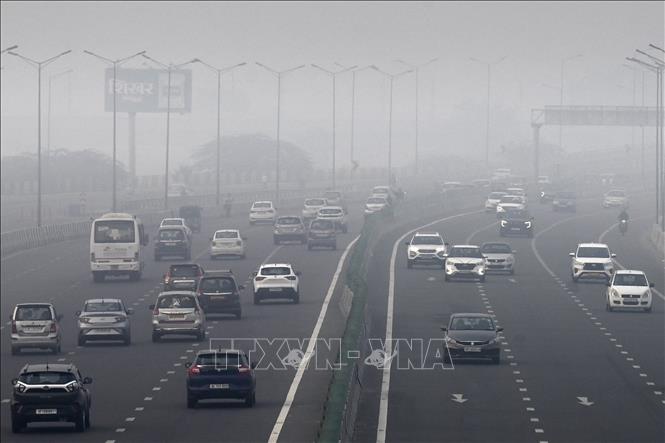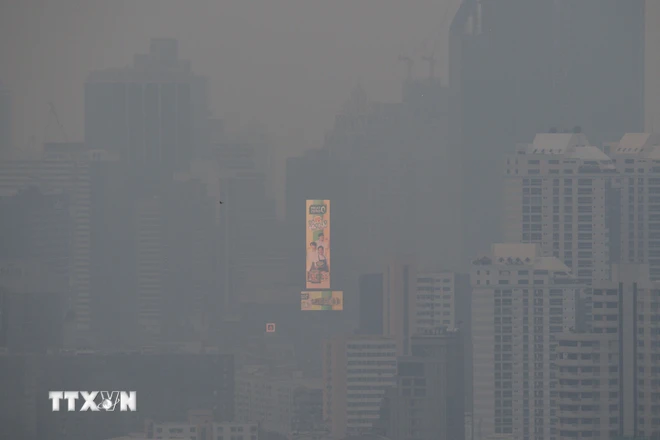THE STRUGGLE AGAINST AIR POLLUTION IN ASIA
Air is a precious resource and a fundamental condition for life on Earth. However, in many Asian countries, the air is severely threatened by pollution. This is an urgent issue that directly impacts human health, the environment, and socio-economic development.
According to the Global Air Quality Monitoring Report by IQAir, 9 out of the 10 most polluted cities in the world are located in India. Specifically, New Delhi, the capital city with a population of approximately 33 million, has recorded PM2.5 levels exceeding the World Health Organization’s safe threshold by more than 104 times, significantly affecting the lives of its residents.

Dust “sea” in New Delhi (India). (Photo: TTXVN)
In Beijing (China), during the first 11 months of the year, PM2.5 fine particulate matter levels increased by 3.2% compared to the same period last year. Additionally, 13 out of 31 cities in China do not meet PM2.5 standards, and 11 provinces and cities fail to meet national ozone standards.
Southeast Asian countries are also not exempt from this battle. Thailand, in particular, faces severe air pollution. According to a report by AirBKK (Bangkok Metropolitan Administration’s Air Quality Information Center), 20 districts in Bangkok recorded PM2.5 levels exceeding 75 mcg/m³ (while the safe threshold is 37.5 mcg/m³). Furthermore, air quality indices in Chiang Mai have reached as high as 267, categorizing this tourist city among the world’s highest levels of fine particulate matter.

PM2.5 fine particulate matter “engulfing” Bangkok (Thailand). (Photo: TTXVN)
Unusually high air pollution levels have also been observed in Laos. The underlying causes are attributed to both natural factors (such as forest fires, geographical conditions, and climate) and human activities that degrade air quality.
However, in reality, human actions play a significant role in exacerbating pollution. Each year, air pollution leads to millions of deaths from respiratory, cardiovascular, and cancer-related diseases. It also has other negative impacts, such as reduced labor productivity, economic consequences, and a decline in overall quality of life.
Therefore, to end this battle and achieve the goal of clean and safe air, continuous efforts are needed from nations and each individual.
According to: TTXVN/Vietnamplus







